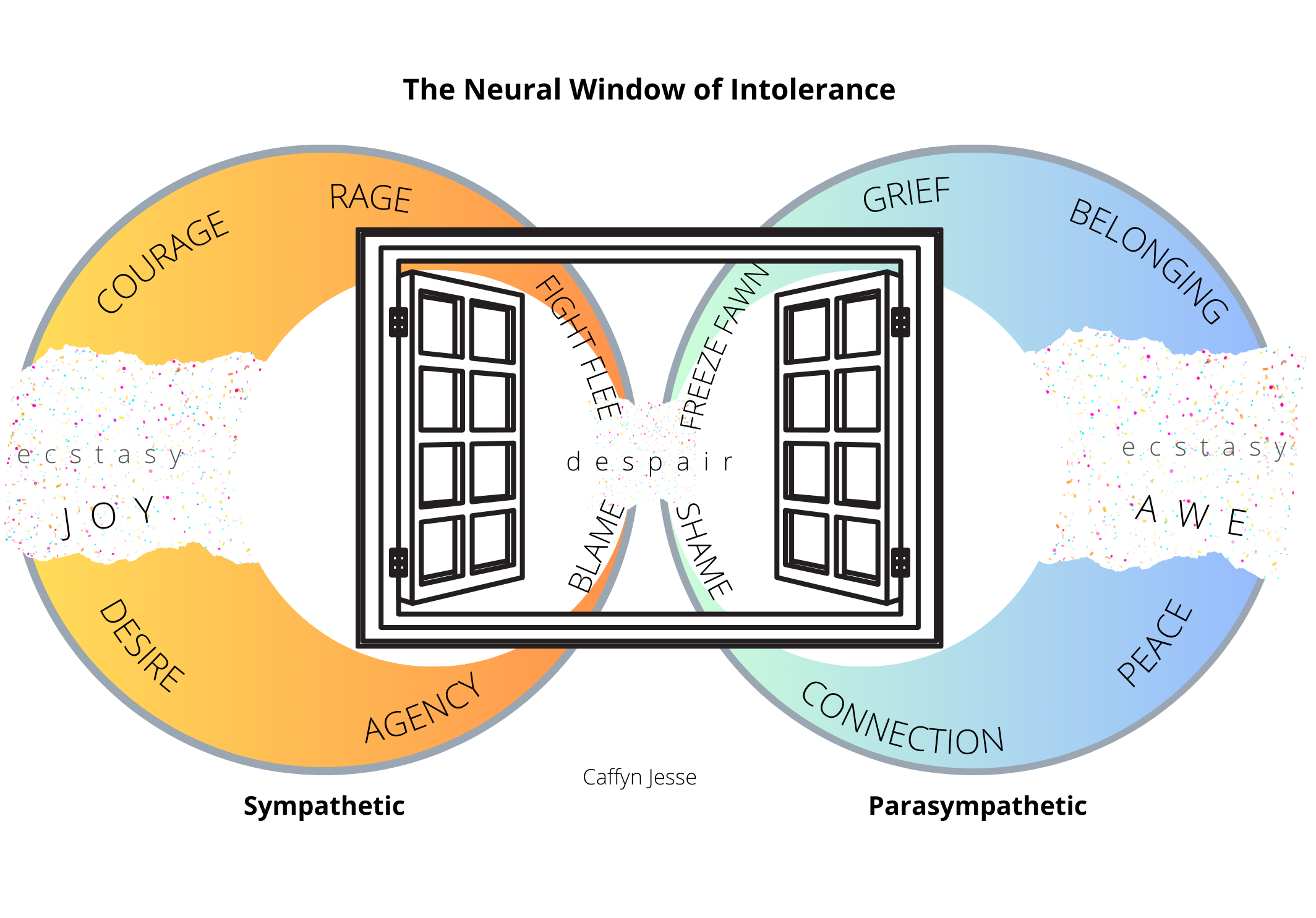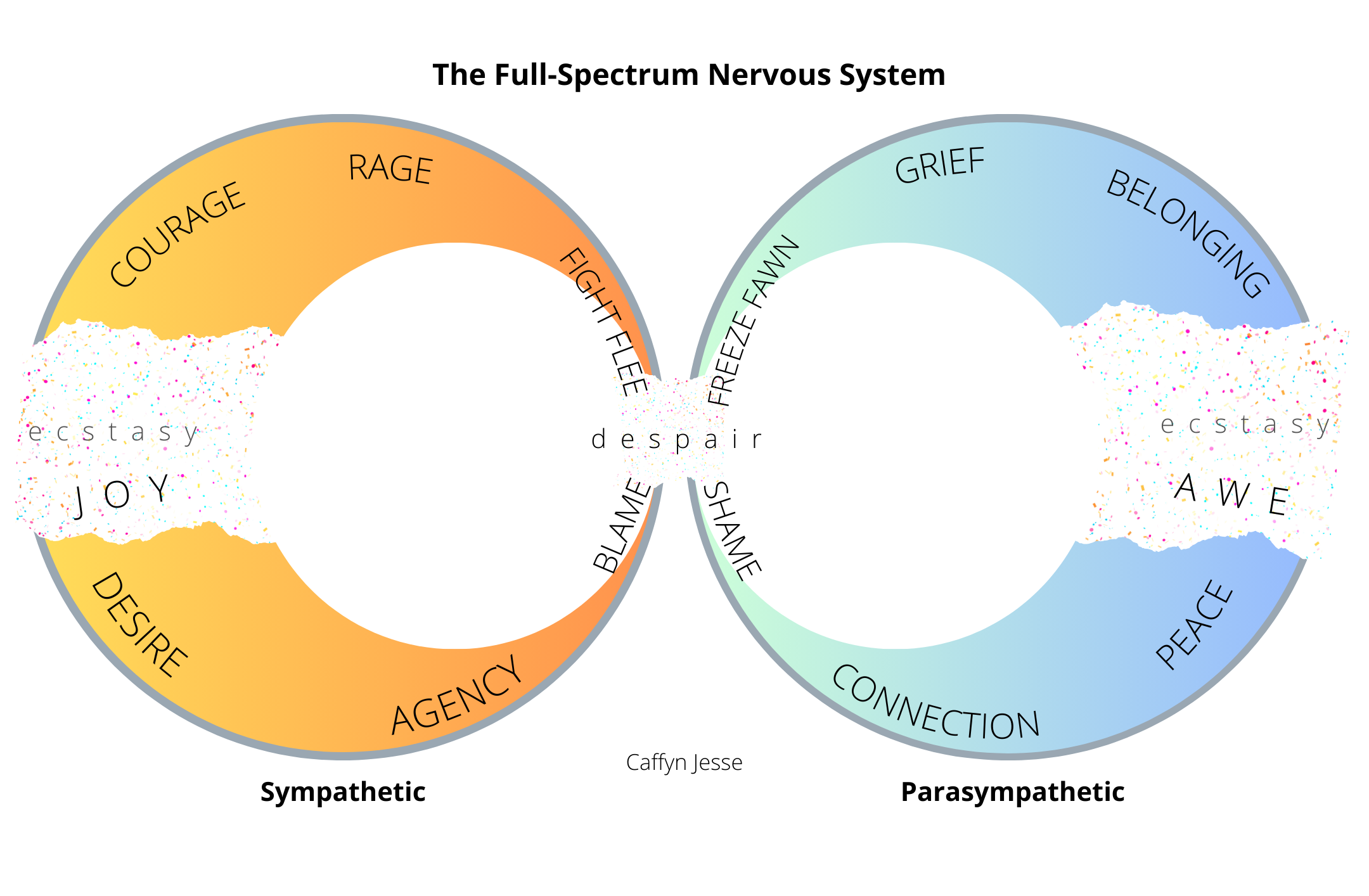
Beyond the Window of Tolerance
I do think ecstasy is a key resource for social change. To push against what is socially valued, and ordinary, we need to expand our nervous system capacities. Instead of seeking safety, we need to build capacity to respond to danger with courageous commitment to one another, and to our values. With ecstatic practice, we start to inhabit the full spectrum of our nervous systems. We become resourced to build a counternormative relational world.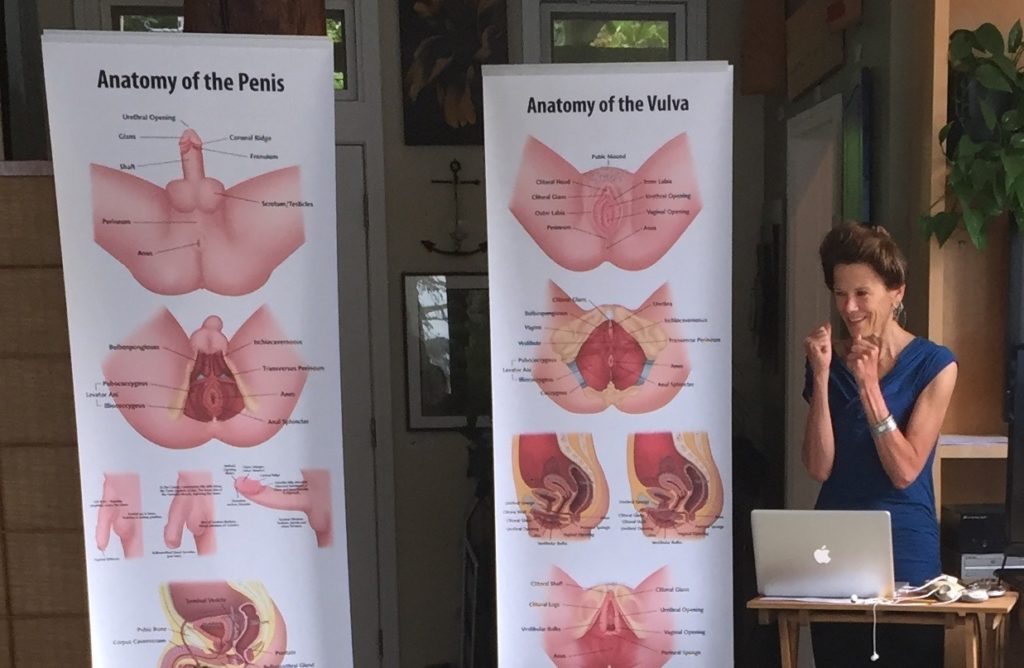
Somatic Sex Education Professional Training
In a professional training for somatic sex educators, you will learn how to companion clients in the embodied reclaiming of sexual pleasure.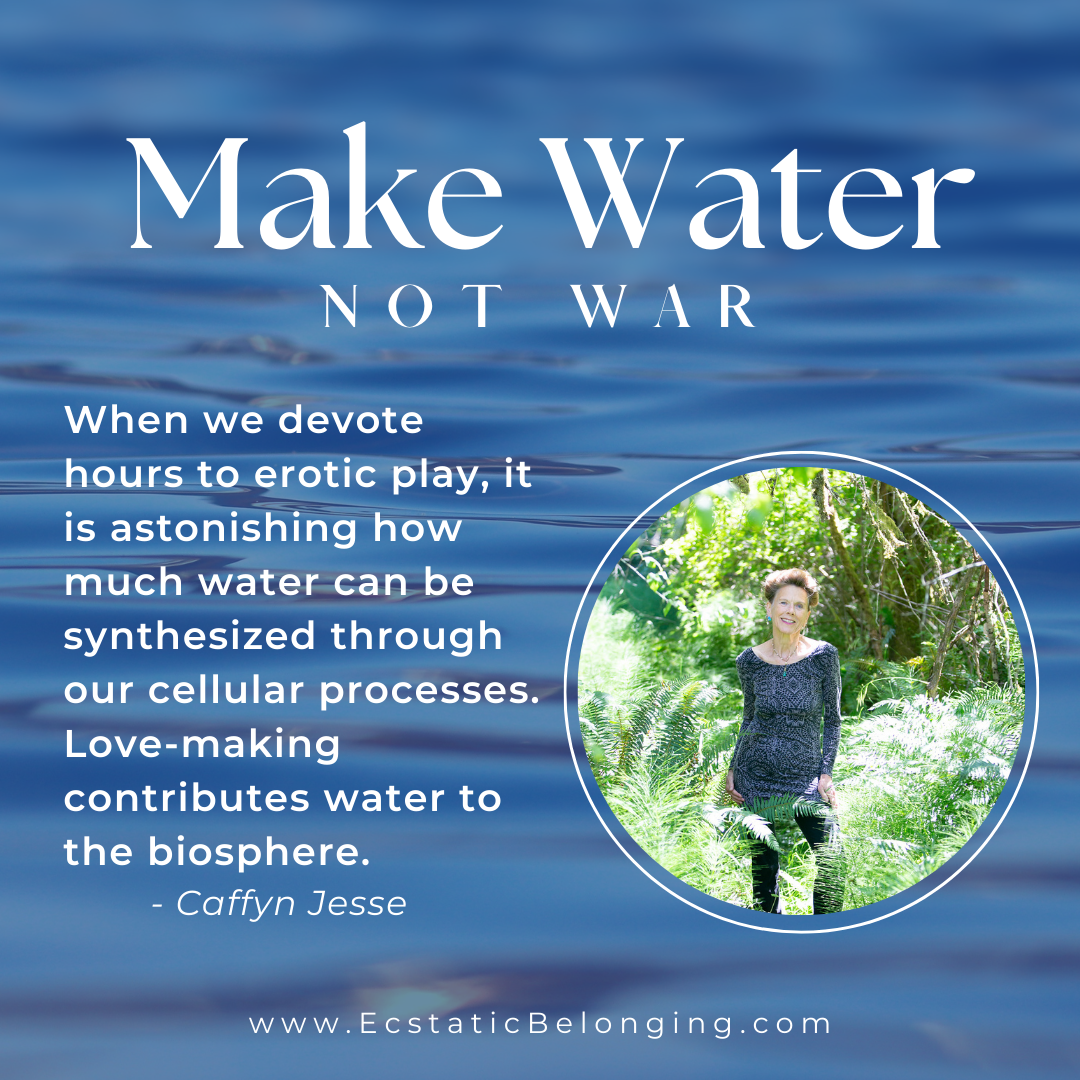
Make Water Not War
In the midst of an extended drought, I am glad to say that I spent all day with a loving friend, synthesizing water. When we devote 7 hours to erotic play (instead the 7 minutes that is average, in North America), it is truly astonishing how much water gets born through our cellular processes. Ejaculate, injaculate (we have to pee a lot), sweat and tears – newborn water comes to join the hydrosphere. Our love-making is wanted and needed, by the intricate emergent system of the biosphere.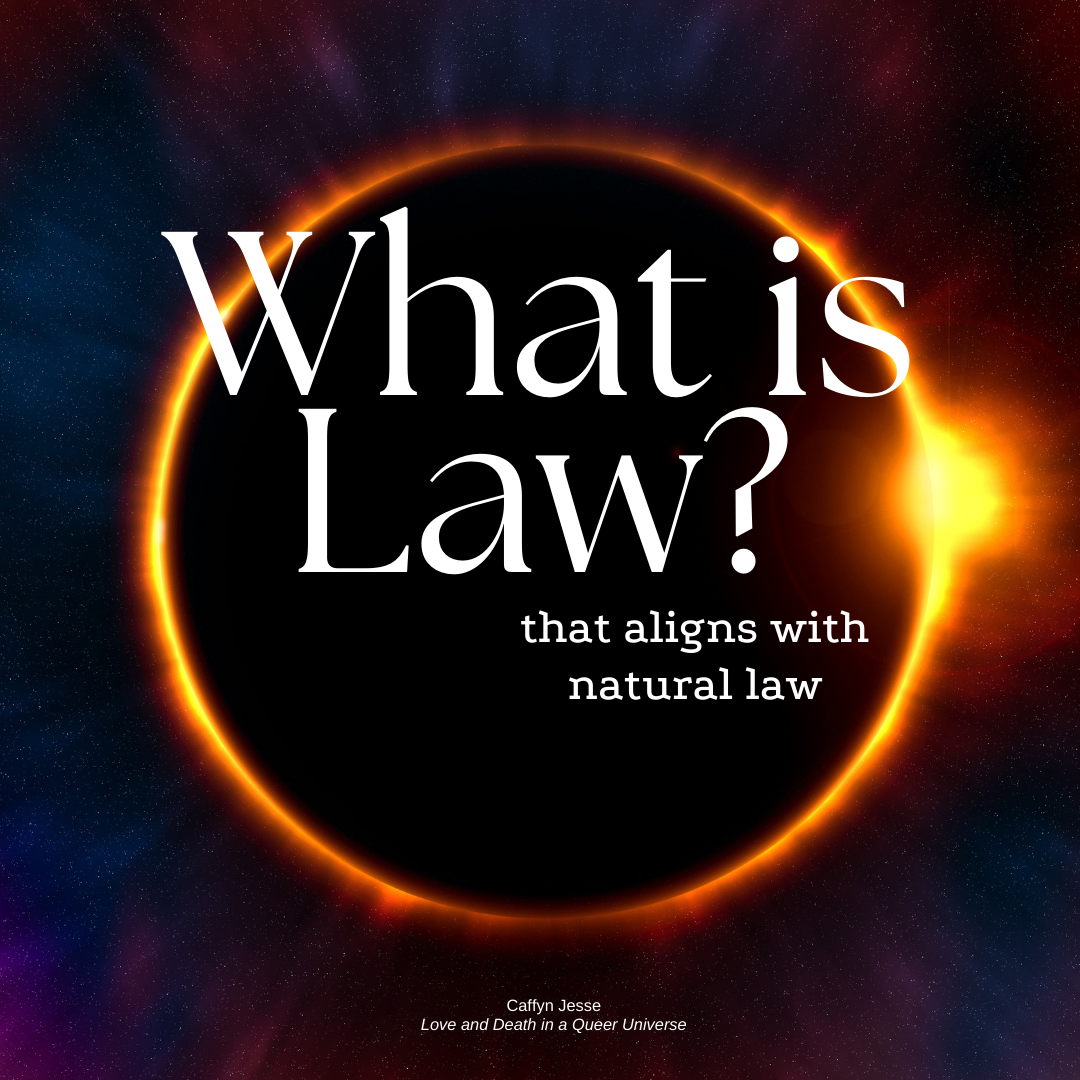
What is Law?
In envisioning transformative justice, how do we contend with the concept of “law”? There is law as a system of rules, roles and penalties that serves a means of social control, in human societies. And then, there is the pattern language of the natural world – laws of physics, chemistry and biology. As a student of nature’s pattern language, I experience a powerful sense of excitement – and molecular realignment – whenever I encounter human words and ways that feel aligned with natural law. I experience the emergence of what adrienne marie brown identifies as: “the whole world/learning/from within.”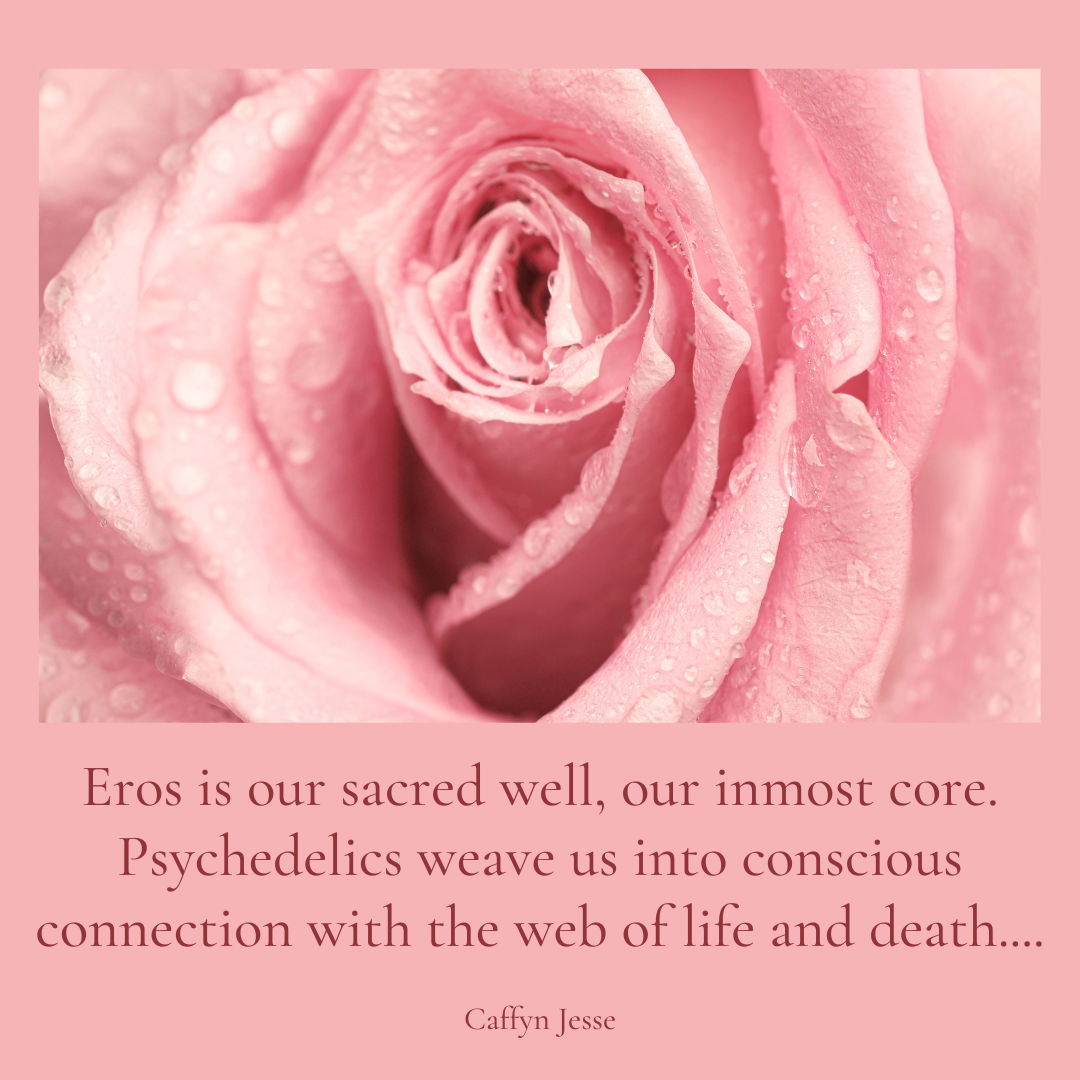
Psychedelic Medicine and Somatic Sexual Wellness
For me, Eros is our sacred well, our inmost core. Psychedelics weave us into conscious connection with the web of life and death; we feel wanted and welcome. So the intersection of somatic sexual wellness and psychedelic medicines can be a place of powerful magic – but also of grave danger, and potential for major misattunements.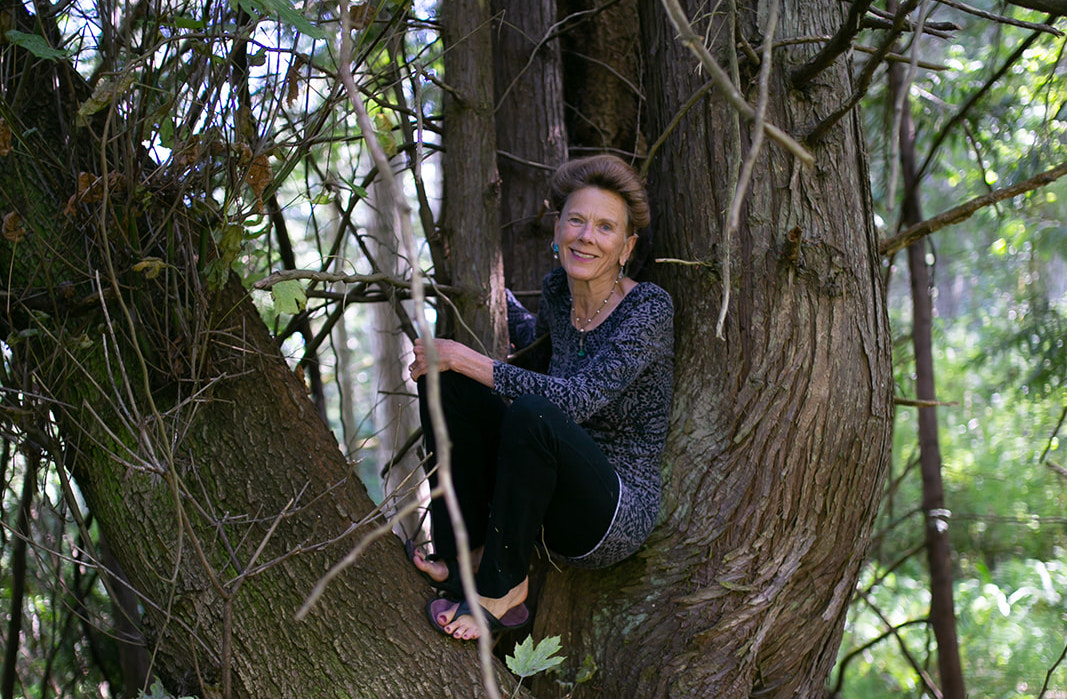
Belonging to the Song
I want to be like birds, as I attune to my intimate world, both human and non-human. How can I belong to the song? Can I listen for the sweet music of each person I love, without getting distracted by all the noise? Can we keep on discerning what song only we can sing, in the weave of each particular us? What if I give my attention to the music, with more and more precision?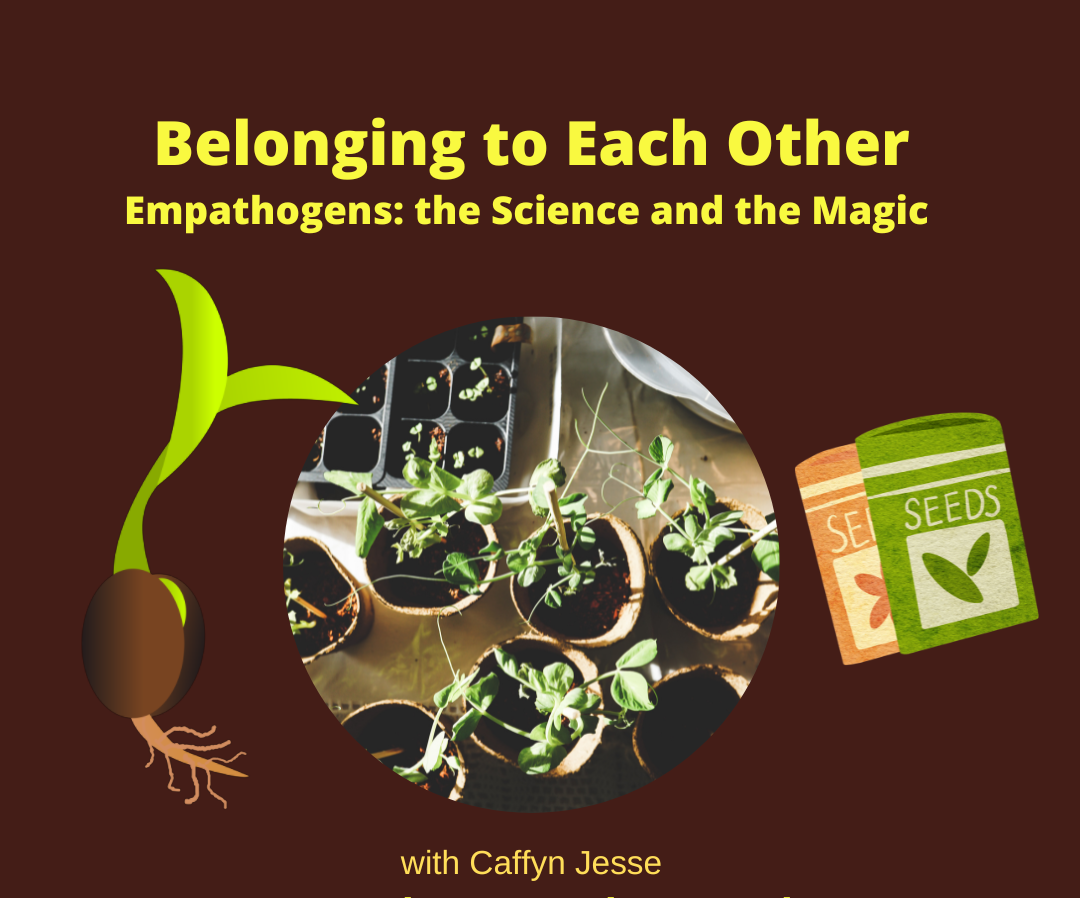
Empathogens: The Science and the Magic
These medicines light up both the serotonin and dopamine systems in our brains and bodies, so we feel both passion and peace, at the same time. Spoiler alert: we don’t actually need drugs to find this. These molecular messengers are part of every being in the biosphere, and the neuroendocrine systems within and between us. How can we use them in ways that help us belong to this global network of our true belonging? Instead, these medicines are getting mobilized to help people tolerate intolerable systems. Are we going to keep our trauma treatments confined to the very paradigms that created all this awful, ongoing trauma in the first place?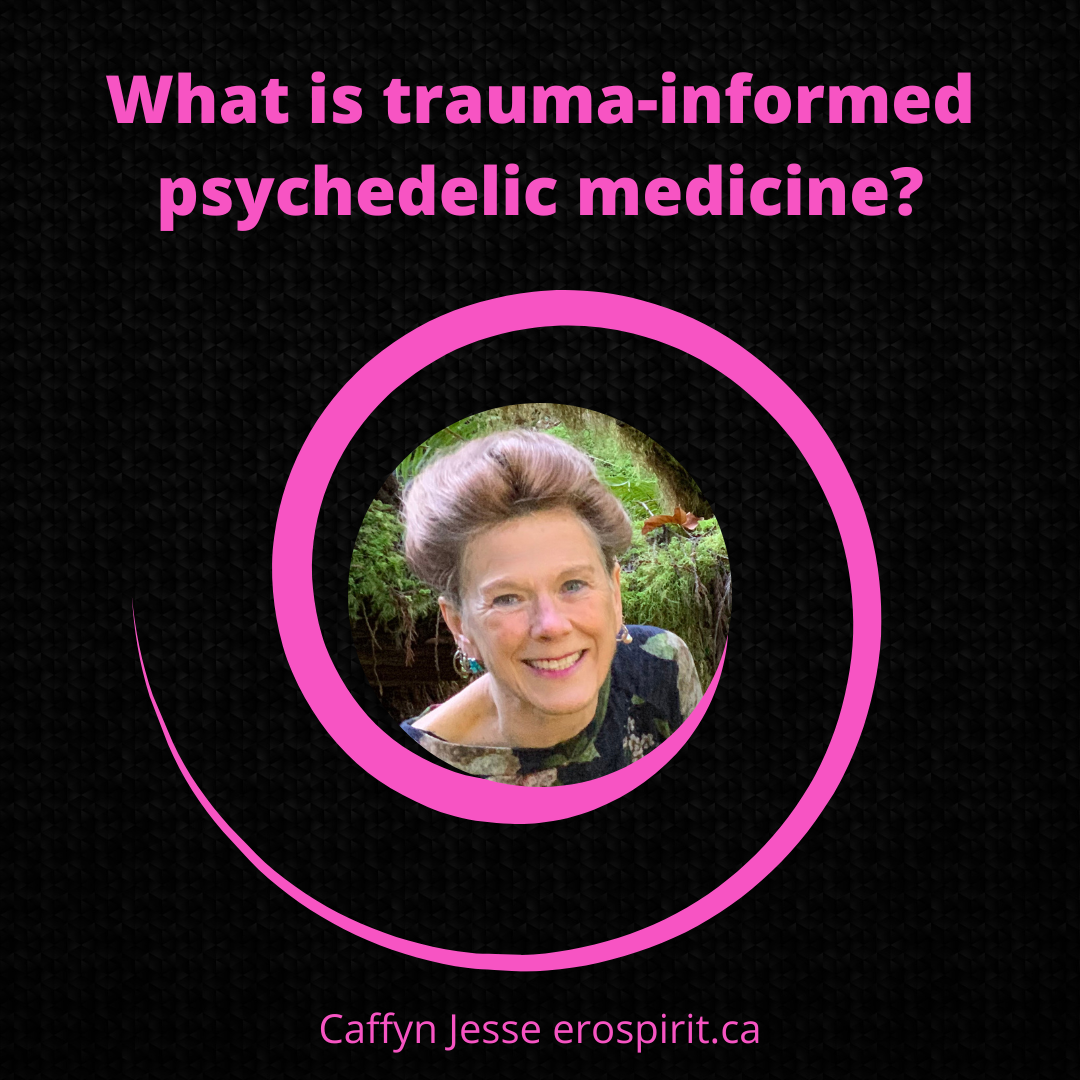
Trauma-Informed Psychedelics
Whether I’m working with the erotic, or with psychedelics, I want to support people in feeling empowered choice and voice. I want them growing their embodied self-trust, and capacity for discerning trust-worthiness in others. This takes actual, embodied practice.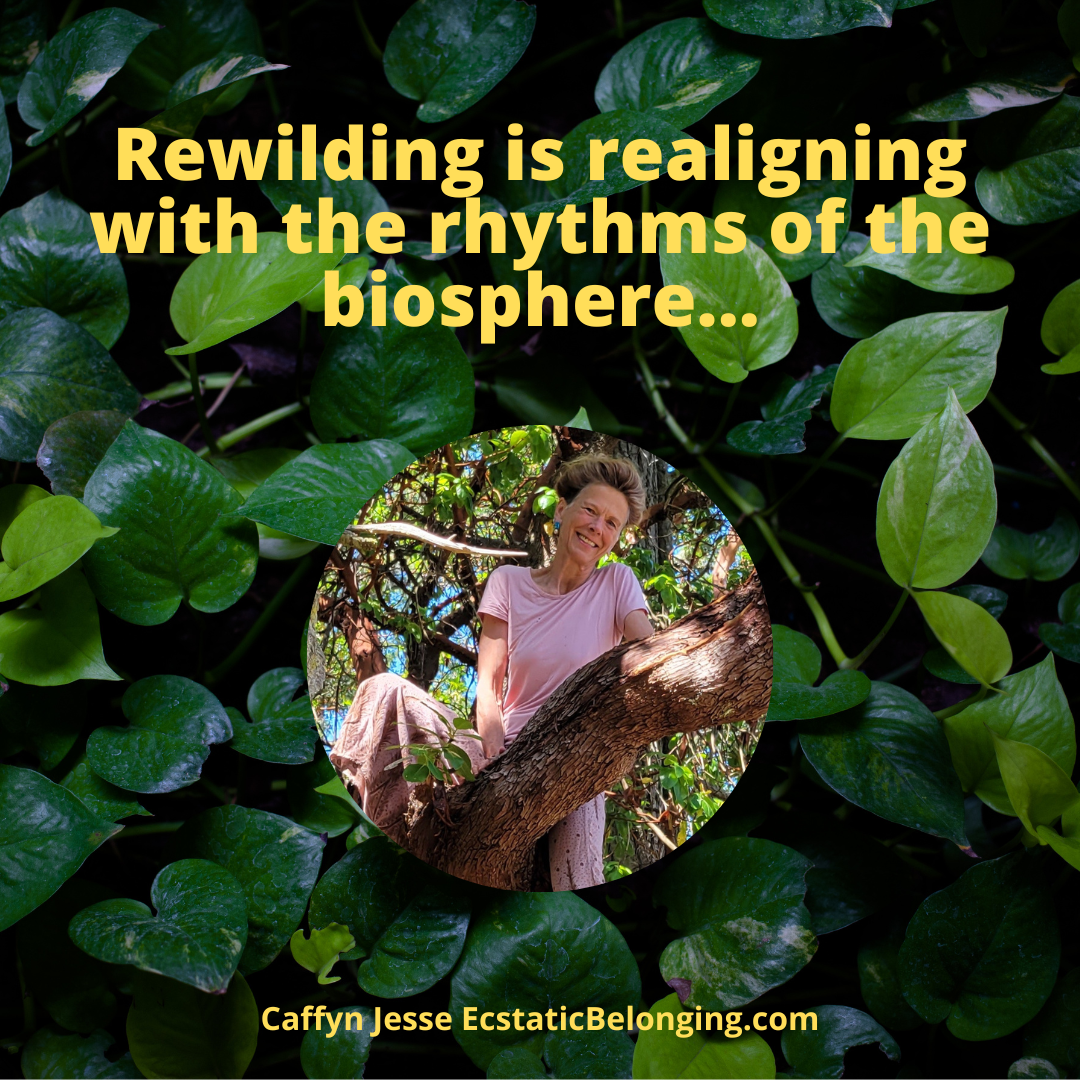
Rewilding Our Bodies and Our Minds
Thinking about how we need each other’s help, to rewild our bodies and our minds….Trauma keeps the erotic imagination separate from any future we dare dream of. Minds keep muttering about the damage and the dangers. Bodies dissociate from terrors. We keep desires small. It’s all so wise. Muttering and muting are brilliant neuroendocrine responses to trauma. It’s what keeps us alive, until we find our way home.But once we are home, we need to co-create the safe-enough, brave-enough embodied practices, that help us come off mute, and rewild our bodies and our minds.